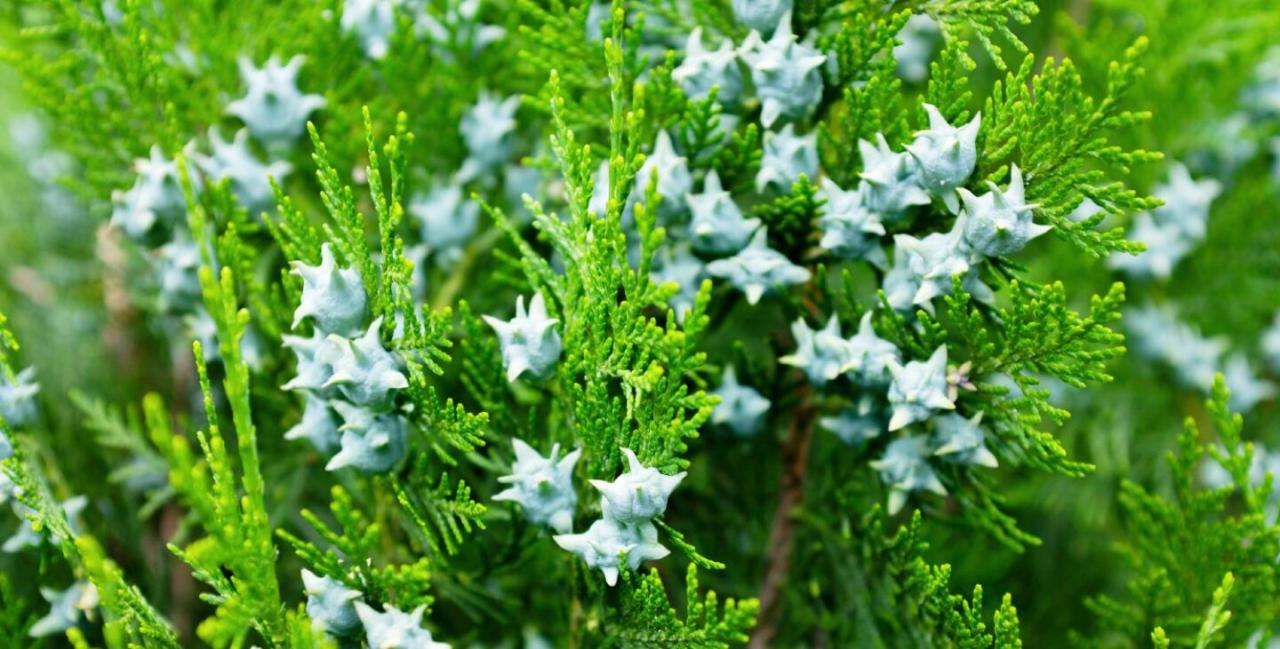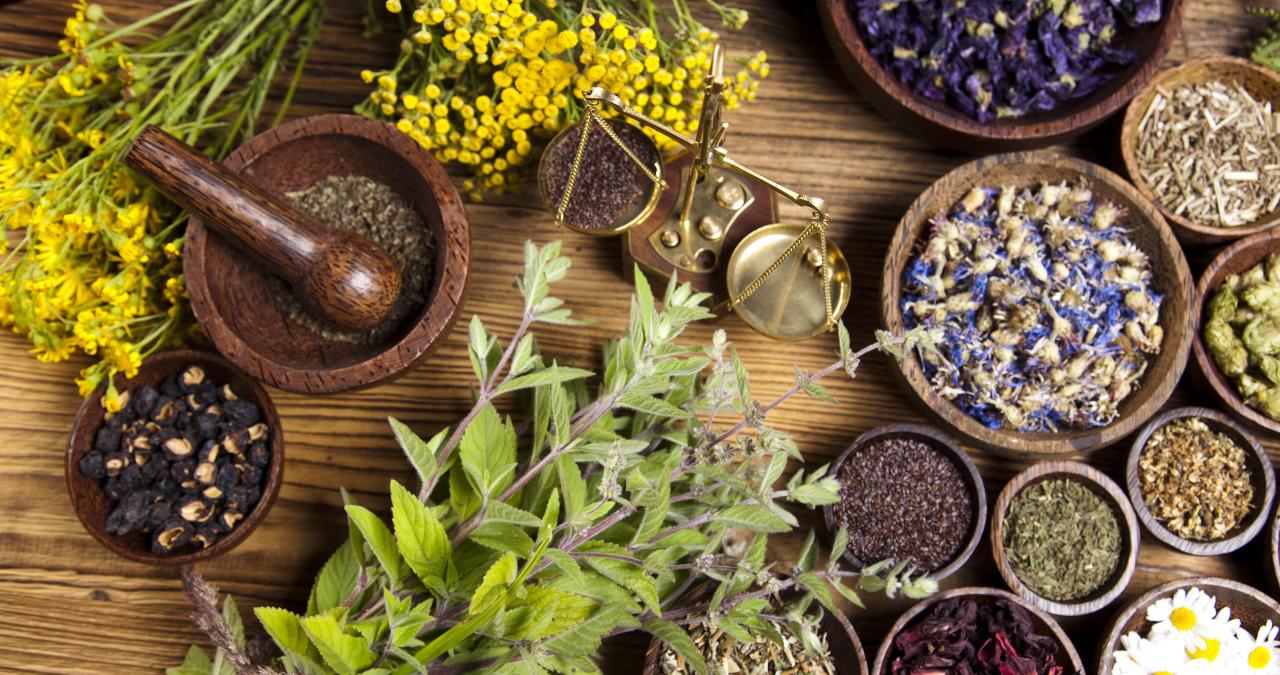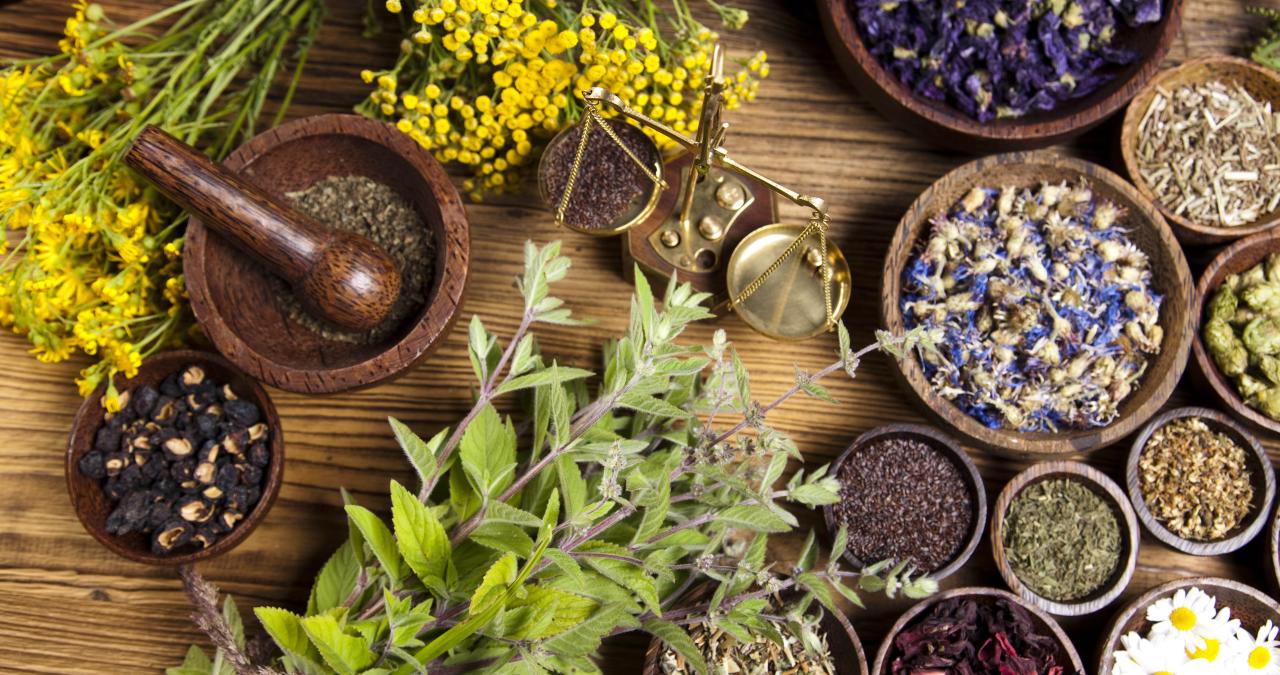Biota Herb: The Herbal Remedy Everyone’s Talking About has captured the attention of health enthusiasts and traditional medicine practitioners alike. This ancient herb, with roots in various cultures, is now gaining recognition for its potential health benefits. From its ability to support respiratory health to its role in bolstering the immune system, Biota Herb is becoming a popular choice for natural wellness.
This article delves into the fascinating world of Biota Herb, exploring its botanical origins, traditional uses, and modern applications. We’ll examine the scientific evidence supporting its potential health benefits, discuss its properties, and provide guidance for safe and effective use.
Join us as we uncover the secrets of this intriguing herbal remedy.
What is Biota Herb?
Biota Herb, also known as thuja, is a popular herbal remedy with a long history of use in traditional medicine. This evergreen conifer, native to East Asia, is prized for its medicinal properties and has been used for centuries to treat various ailments.
Botanical Origins
Biota Herb is a species of coniferous tree belonging to the genus
- Platycladus* within the cypress family,
- Cupressaceae*. Its scientific name is
- Platycladus orientalis*, formerly known as
- Thuja orientalis*. This tree is native to China, Korea, and Japan, and is widely cultivated for its ornamental value and medicinal properties.
Traditional Uses
Biota Herb has been used in traditional medicine for centuries, particularly in East Asian cultures. Its leaves, twigs, and seeds have been employed for a wide range of ailments, including:
- Respiratory problems:Biota Herb is traditionally used to relieve symptoms of coughs, colds, and asthma. It is believed to have expectorant properties, helping to clear the airways and reduce congestion.
- Skin conditions:Biota Herb is also used topically to treat skin conditions like eczema, psoriasis, and fungal infections. It is believed to have antimicrobial and anti-inflammatory properties that can soothe irritated skin.
- Other uses:Biota Herb has been used in traditional medicine for other purposes, such as treating urinary tract infections, digestive problems, and even certain types of cancer. However, more scientific research is needed to confirm these traditional claims.
Common Aliases
Biota Herb is known by various common names, including:
- Chinese Arborvitae:This name reflects its origins in China and its resemblance to the arborvitae tree.
- Oriental Arborvitae:Similar to the previous name, this highlights its Eastern origins.
- Thuja:While the scientific name has changed, this common name is still widely used.
- Tree of Life:This name is attributed to its longevity and medicinal properties.
Biota Herb’s Potential Health Benefits

Biota Herb, scientifically known as _Platycladus orientalis_, has been used in traditional medicine for centuries, and modern research is beginning to uncover its potential health benefits. Studies suggest that Biota Herb may possess properties that could support respiratory health, enhance immune function, and offer other therapeutic applications.
Respiratory Health Benefits
Biota Herb has been traditionally used to address respiratory issues, and recent research supports this application. Studies indicate that compounds found in Biota Herb, such as essential oils and flavonoids, may exhibit anti-inflammatory and bronchodilatory effects.
Biota Herb’s potential to alleviate respiratory symptoms like coughing, wheezing, and shortness of breath warrants further investigation.
Immune Function Support
Biota Herb may contribute to a robust immune system. Research suggests that its components may possess immunomodulatory properties, potentially stimulating the body’s natural defenses.
Biota Herb’s potential to enhance immune function may be attributed to its ability to modulate the activity of immune cells.
While Biota Herb is gaining popularity for its purported health benefits, another topic that’s generating buzz is the propagation of African violets. If you’re interested in cultivating these beautiful blooms, check out The Easiest Method to Propagate African Violets Without Failing , which provides a simple and effective guide.
Once you’ve mastered the art of propagation, you can enjoy the vibrant colors and delicate beauty of African violets, adding a touch of nature to your home or garden.
Traditional Medicine Applications
Biota Herb has a long history of use in traditional medicine systems, particularly in East Asian cultures. It has been employed for various conditions, including:
- Respiratory ailments:Biota Herb has been used to treat coughs, asthma, and bronchitis.
- Skin conditions:It has been applied topically to address skin infections, eczema, and wounds.
- Digestive issues:Biota Herb has been used to alleviate indigestion, diarrhea, and abdominal pain.
- Anti-inflammatory effects:Biota Herb has been traditionally used to reduce inflammation associated with various conditions.
Understanding Biota Herb’s Properties

Biota herb, also known as thuja, is a coniferous evergreen tree that has been used in traditional medicine for centuries. Its leaves, twigs, and cones contain various active compounds that contribute to its therapeutic properties. Understanding the properties of Biota herb involves examining its chemical composition and the mechanisms by which these compounds interact with the body.
Active Compounds in Biota Herb
Biota herb contains a diverse array of active compounds, including volatile oils, flavonoids, tannins, and resins.
- Volatile Oils:These oils, such as thujone, are responsible for Biota herb’s distinctive aroma and contribute to its antimicrobial and antifungal properties.
- Flavonoids:These compounds, such as quercetin and kaempferol, exhibit antioxidant and anti-inflammatory properties, protecting cells from damage caused by free radicals.
- Tannins:These astringent compounds possess antimicrobial and anti-inflammatory properties, contributing to Biota herb’s wound-healing and anti-diarrheal effects.
- Resins:These sticky substances contain compounds that may have anti-inflammatory and analgesic properties, contributing to Biota herb’s pain-relieving effects.
Interaction with the Body
The active compounds in Biota herb interact with the body in various ways. For instance, thujone, a volatile oil, has been shown to have neuroprotective effects, potentially contributing to Biota herb’s traditional use for cognitive function. Flavonoids and tannins, with their antioxidant and anti-inflammatory properties, may help reduce oxidative stress and inflammation throughout the body.
While Biota Herb is gaining popularity for its potential health benefits, another topic that’s generating buzz in the gardening world is African Violet Propagation. If you’re looking for a fast and easy way to multiply your collection of these beautiful blooms, check out this helpful guide on African Violet Propagation: The Ultimate Gardening Shortcut.
And who knows, maybe you’ll find that your love for gardening and herbal remedies can be combined with a thriving collection of African Violets!
Resins, with their analgesic properties, could contribute to Biota herb’s pain-relieving effects.
Potential Interactions with Other Medications
Biota herb can potentially interact with certain medications, especially those that affect the central nervous system, such as anti-anxiety medications and sedatives. It’s crucial to consult a healthcare professional before using Biota herb, especially if you are taking any medications or have any underlying health conditions.
Using Biota Herb Safely and Effectively
Biota herb, also known as thuja, has been used for centuries in traditional medicine for its various purported health benefits. However, it is crucial to use biota herb safely and effectively to avoid potential side effects or complications. This section will discuss essential guidelines for using biota herb, including potential side effects, contraindications, recommended dosage, and forms of biota herb.
Potential Side Effects and Contraindications
Biota herb is generally considered safe when used in moderation. However, it can cause certain side effects in some individuals, especially when used in large doses or for extended periods.
Potential Side Effects
- Skin irritation:Topical application of biota herb can cause skin irritation, redness, or allergic reactions in sensitive individuals.
- Gastrointestinal upset:Ingesting biota herb can lead to nausea, vomiting, diarrhea, or stomach cramps, particularly in higher doses.
- Allergic reactions:Some people may experience allergic reactions to biota herb, including skin rash, itching, or difficulty breathing.
- Cardiovascular effects:Biota herb can potentially affect heart rate and blood pressure, especially in individuals with pre-existing cardiovascular conditions.
- Neurological effects:In some cases, biota herb can cause dizziness, headache, or seizures, particularly in high doses.
Contraindications
Biota herb is contraindicated in certain individuals, including:
- Pregnant and breastfeeding women:Biota herb can potentially harm the fetus or infant, so it should be avoided during pregnancy and breastfeeding.
- Individuals with kidney or liver problems:Biota herb can put extra strain on these organs, so it should be used with caution or avoided altogether in individuals with kidney or liver disease.
- Individuals with autoimmune disorders:Biota herb may worsen autoimmune conditions, so it should be used with caution or avoided in these individuals.
- Individuals taking certain medications:Biota herb can interact with certain medications, such as blood thinners, anti-depressants, and immunosuppressants. It is crucial to consult with a healthcare professional before using biota herb if taking any medications.
Recommended Dosage and Forms of Biota Herb
The recommended dosage of biota herb varies depending on the form of use, the individual’s health condition, and the specific health benefit sought. It is essential to consult with a healthcare professional before using biota herb to determine the appropriate dosage and form for your individual needs.
Dosage
- Topical use:Biota herb is typically used topically as a cream, ointment, or oil. The recommended dosage for topical use varies depending on the product and the condition being treated. It is essential to follow the manufacturer’s instructions or consult with a healthcare professional.
- Oral use:Biota herb is available in various oral forms, including capsules, tablets, and tinctures. The recommended dosage for oral use varies depending on the form and the condition being treated. It is crucial to consult with a healthcare professional to determine the appropriate dosage.
Forms of Biota Herb
Biota herb is available in various forms, including:
- Dried herb:Dried biota herb can be used to make teas, infusions, or tinctures.
- Essential oil:Biota herb essential oil is extracted from the leaves and twigs of the plant. It is often used in aromatherapy and diluted in carrier oils for topical application.
- Capsules and tablets:Biota herb is also available in capsule and tablet form, which provides a convenient way to ingest the herb.
- Tinctures:Biota herb tinctures are alcohol extracts of the herb. They are often taken orally in small doses.
Biota Herb in Modern Applications
The growing body of research exploring Biota Herb’s potential benefits has led to a surge in interest in its modern applications. Researchers and practitioners are exploring its potential use in various medical and wellness contexts, driven by its unique properties and traditional uses.
Biota Herb in Modern Medicine, Biota Herb: The Herbal Remedy Everyone’s Talking About
The potential of Biota Herb in modern medicine is being actively investigated. Several studies focus on its anti-inflammatory, antimicrobial, and antioxidant properties, suggesting its potential use in treating various conditions. For instance, research suggests that Biota Herb extracts could be effective in treating respiratory infections, skin conditions, and even certain types of cancer.
- Anti-inflammatory Effects:Biota Herb has demonstrated anti-inflammatory properties in various studies, potentially making it a valuable therapeutic agent for conditions like arthritis, inflammatory bowel disease, and asthma.
- Antimicrobial Activity:Research suggests that Biota Herb extracts possess antimicrobial properties, potentially effective against a range of bacteria and fungi. This could lead to its application in treating infections and developing new antimicrobial therapies.
- Antioxidant Potential:Biota Herb’s antioxidant properties may offer protection against oxidative stress, which is linked to various chronic diseases. Further research is needed to explore its potential use in preventing or treating conditions like cardiovascular disease, neurodegenerative diseases, and cancer.
Biota Herb in Wellness Practices
Biota Herb is increasingly finding its place in modern wellness practices. Its traditional use for promoting relaxation and reducing stress has fueled interest in its potential as a natural remedy for anxiety and sleep disorders. Additionally, its purported immune-boosting properties are being explored for their potential to enhance overall well-being.
- Stress and Anxiety Management:Traditional practices have long used Biota Herb to promote relaxation and reduce stress. Modern research is exploring its potential as a natural remedy for anxiety and sleep disorders, potentially offering a safe and effective alternative to conventional treatments.
- Immune Support:Biota Herb’s potential to enhance immune function is another area of interest. Its purported immune-boosting properties are being explored for their potential to improve overall health and well-being.
- Skincare Applications:Biota Herb’s anti-inflammatory and antimicrobial properties make it a promising ingredient in skincare products. Its potential to reduce inflammation, treat acne, and promote skin health is being explored by cosmetic companies.
Biota Herb Product Availability
Biota Herb products are becoming increasingly available, with various forms, including teas, capsules, tinctures, and topical creams, readily accessible through online retailers and health food stores. However, it’s crucial to choose reputable sources and consult with healthcare professionals before incorporating Biota Herb into your routine.
Biota Herb and Sustainability
The increasing popularity of Biota Herb, coupled with its potential health benefits, raises important questions about the sustainability of its cultivation and harvesting practices. It is crucial to ensure that the demand for this herb does not come at the expense of environmental well-being and ethical sourcing.
Environmental Impact of Biota Herb Cultivation
The environmental impact of Biota Herb cultivation depends largely on the specific practices employed. Sustainable cultivation methods can minimize negative impacts, while unsustainable practices can lead to detrimental consequences for the environment.
- Land Use and Habitat Loss:Large-scale cultivation of Biota Herb can lead to deforestation and habitat loss, especially if it involves converting natural ecosystems into agricultural land. This can disrupt biodiversity and impact local wildlife populations. To mitigate this risk, it is crucial to prioritize cultivation in areas that are already used for agriculture or to adopt agroforestry practices that integrate trees with crops.
- Water Consumption:Like any crop, Biota Herb cultivation requires water for irrigation. Excessive water consumption can deplete water resources, particularly in arid or semi-arid regions. Water-efficient irrigation techniques, such as drip irrigation, can help minimize water use and reduce the environmental impact.
- Pesticide and Fertilizer Use:The use of pesticides and fertilizers can contaminate soil and water sources, harming ecosystems and wildlife. Organic farming practices, which avoid synthetic pesticides and fertilizers, are essential for minimizing the environmental impact of Biota Herb cultivation. These practices rely on natural methods like crop rotation, composting, and biological pest control.
Ethical Considerations in Biota Herb Sourcing
Ensuring ethical sourcing practices is crucial for safeguarding the well-being of both the environment and the people involved in the production of Biota Herb.
- Fair Trade and Labor Standards:The sourcing of Biota Herb should comply with fair trade principles and labor standards. This means ensuring fair wages, safe working conditions, and the absence of child labor. It also involves supporting local communities and promoting sustainable economic development.
- Biodiversity Conservation:The sourcing of Biota Herb should prioritize wild-harvesting practices that minimize the impact on biodiversity. This involves avoiding overharvesting and ensuring that harvesting practices do not threaten the long-term survival of the plant species. It is also essential to promote the cultivation of Biota Herb in sustainable ways that minimize the pressure on wild populations.
- Transparency and Traceability:Transparency and traceability are crucial for ensuring ethical sourcing practices. Consumers should be able to access information about the origin of their Biota Herb, the cultivation methods used, and the ethical standards upheld by the producers. This information allows consumers to make informed choices and support sustainable and ethical practices.
Sustainable Practices for Biota Herb Availability
- Organic Certification:Organic certification ensures that Biota Herb is cultivated using sustainable practices that minimize environmental impact. It prohibits the use of synthetic pesticides, fertilizers, and genetically modified organisms (GMOs). Consumers can look for organic certification labels to ensure that their Biota Herb is sourced sustainably.
- Sustainable Harvesting Practices:Sustainable harvesting practices involve harvesting only a portion of the plant, leaving enough for regeneration and ensuring the long-term survival of the species. This approach helps maintain biodiversity and ensures the availability of Biota Herb for future generations.
- Agroecology and Agroforestry:Agroecological and agroforestry practices integrate Biota Herb cultivation with other crops or trees, creating a more diverse and resilient ecosystem. These practices promote biodiversity, reduce the need for pesticides and fertilizers, and enhance soil health.
- Research and Innovation:Ongoing research and innovation are crucial for developing sustainable and efficient cultivation methods for Biota Herb. This includes exploring alternative cultivation techniques, developing drought-resistant varieties, and improving harvesting methods to minimize waste and maximize yield.
Outcome Summary
As research on Biota Herb continues to expand, its potential for modern medicine and wellness practices becomes increasingly apparent. Understanding its properties, safe usage, and ethical sourcing is crucial for harnessing the benefits of this ancient herb. Whether you’re seeking natural support for respiratory health, immune function, or overall well-being, Biota Herb offers a compelling avenue for exploration.
FAQ Section: Biota Herb: The Herbal Remedy Everyone’s Talking About
Is Biota Herb safe for everyone to use?
While Biota Herb is generally considered safe when used appropriately, it’s essential to consult with a healthcare professional before using it, especially if you have pre-existing medical conditions or are taking medications. They can help determine if Biota Herb is right for you and provide personalized guidance.
Where can I find Biota Herb products?
Biota Herb products are increasingly available online and at health food stores. Look for reputable brands that prioritize quality, sustainability, and transparency in their sourcing and manufacturing practices.
How long does it take to experience the benefits of Biota Herb?
The time it takes to experience the benefits of Biota Herb can vary depending on individual factors, dosage, and the specific health concern being addressed. Consistency and patience are key when incorporating any herbal remedy into your wellness routine.
